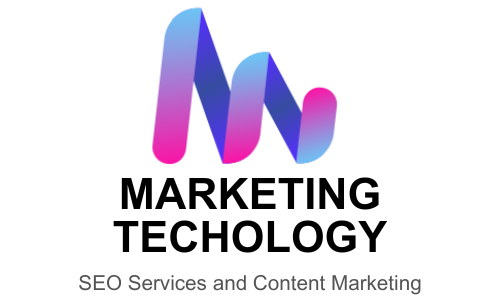Healthcare marketing is undergoing a significant transformation, fueled by advancements in technology, shifting patient expectations, and the increasing reliance on digital channels. The future of healthcare marketing is increasingly about delivering personalized, targeted experiences to patients, leveraging the power of data, and embracing emerging technologies like artificial intelligence (AI) and machine learning. Healthcare providers need to stay ahead of these trends to remain competitive, attract new patients, and improve patient engagement. In this article, we will explore the major healthcare marketing trends that will define the future of the industry and discuss the implications these changes will have for healthcare marketers.
1. Personalization through Data-Driven Marketing
Personalized marketing is one of the most powerful tools for healthcare marketers in the future. By using patient data, healthcare providers can create targeted campaigns and personalized content that resonates with specific patient groups. This can include delivering personalized health tips, relevant treatment options, and messages that cater to the patient’s needs. With advancements in data collection and analytics tools, healthcare marketers can gain deeper insights into patient preferences, behaviors, and interests, allowing them to build a more customized patient experience. The future of healthcare marketing will rely heavily on personalization to foster stronger relationships and improve patient outcomes.
2. Telemedicine and Virtual Healthcare Promotion
Telemedicine has surged in popularity, especially after the COVID-19 pandemic, and it is here to stay. As patients seek more convenient ways to access healthcare, the demand for virtual healthcare services is expected to continue growing. Healthcare marketers must adapt by developing campaigns that promote telemedicine and virtual consultations. This includes educating patients on how telehealth works, the benefits it offers, and how easy it is to access healthcare remotely. The future of healthcare marketing will include a stronger emphasis on promoting virtual services, ensuring that patients understand their options and can make informed decisions about their care.
3. Artificial Intelligence and Chatbots

Artificial Intelligence (AI) is transforming many aspects of healthcare marketing. AI-powered tools are helping marketers automate processes, personalize messaging, and optimize campaigns. One of the most significant applications of AI in healthcare marketing is through chatbots. These AI-driven tools can engage patients in real time, answer frequently asked questions, schedule appointments, and provide personalized recommendations. AI can also be used to analyze large sets of patient data to better understand their needs and predict future behaviors. As AI technology continues to evolve, it will play an even larger role in streamlining marketing efforts and improving patient engagement.
4. Voice Search Optimization
As voice-activated devices like Amazon’s Alexa, Google Assistant, and Apple’s Siri become more common, voice search is rapidly gaining popularity. People are increasingly turning to these devices to search for healthcare-related information, including finding doctors, booking appointments, and seeking health advice. This presents a huge opportunity for healthcare marketers to optimize their content for voice search. Unlike traditional search queries, voice searches tend to be more conversational, so healthcare providers will need to adjust their SEO strategies to ensure their content ranks for voice search queries. Healthcare organizations that embrace voice search optimization will gain a competitive edge by being easily discoverable when patients use voice assistants to search for medical services.
5. Video Marketing and Telehealth Education

Video content is one of the most effective forms of communication in the digital age, and its importance in healthcare marketing is expected to grow exponentially. Video allows healthcare providers to educate and engage patients in a way that written content cannot. With telemedicine on the rise, video marketing will play a critical role in promoting virtual consultations, showcasing patient success stories, and explaining medical procedures. Educational videos on health topics, wellness, and preventive care will help establish healthcare organizations as thought leaders and trusted sources of information. Moreover, video content is more likely to be shared on social media platforms, expanding the reach of healthcare organizations and improving their visibility online.
6. Social Media Engagement
Social media platforms like Facebook, Instagram, LinkedIn, and Twitter continue to be vital for healthcare marketing. Social media allows healthcare organizations to directly interact with patients, share health information, promote services, and build a sense of community. In the future, social media will become even more integrated into healthcare marketing strategies. Healthcare providers will use social media not just to promote services but to engage in meaningful conversations with patients, respond to inquiries, and offer support. Social media also offers an opportunity to engage with potential patients before they even need healthcare services by sharing informative content and building awareness of health issues and preventive care.
7. Influencer Marketing in Healthcare

Influencer marketing is no longer just for fashion and lifestyle brands—it is now becoming a key strategy in healthcare marketing. By partnering with influencers in the health and wellness space, healthcare providers can expand their reach and gain credibility. Influencers can help share educational content, promote services, and raise awareness of specific health conditions or treatments. In particular, healthcare influencers who specialize in topics such as mental health, fitness, and nutrition can serve as trusted voices, making healthcare more relatable and approachable to a broad audience. As this trend grows, influencer partnerships will play an increasingly important role in healthcare marketing campaigns.
8. Content Marketing for Health Education
Content marketing has long been a staple of digital marketing, and it is particularly effective in healthcare. Providing valuable, educational content not only helps patients make informed decisions but also positions healthcare organizations as trusted authorities in their field. In the future, content marketing in healthcare will focus even more on creating high-quality resources such as blog posts, infographics, eBooks, and webinars that address common patient concerns and answer questions about health conditions and treatments. By providing useful, informative content, healthcare organizations can drive organic traffic, engage patients, and improve search engine rankings, all while building trust and fostering loyalty.
9. Local SEO and Geo-Targeting
For healthcare providers that serve specific geographic areas, local SEO and geo-targeting are essential for reaching the right audience. Optimizing for local search terms, ensuring accurate business listings, and creating content tailored to local patients are crucial for improving visibility in search engines. As more patients turn to their smartphones to search for healthcare services near them, geo-targeting will enable healthcare marketers to deliver more personalized and location-specific ads, improving the relevance and effectiveness of their campaigns. Local SEO will continue to be a critical strategy for healthcare organizations looking to connect with patients in their area.
10. Patient Reviews and Online Reputation Management

In an increasingly digital world, online reviews have become one of the most influential factors in a patient’s decision-making process. Patients now regularly turn to Google, Yelp, and other review sites to assess the quality of healthcare providers before making an appointment. As a result, healthcare marketers will need to actively manage their online reputation. This includes monitoring patient reviews, responding to feedback, and encouraging satisfied patients to leave positive reviews. Online reputation management will become even more important as patient reviews can significantly impact a healthcare organization’s credibility and success.
11. Data Privacy and Compliance
As digital marketing in healthcare grows, so does the need for robust data privacy practices. Healthcare marketers must adhere to strict regulations, such as the Health Insurance Portability and Accountability Act (HIPAA) in the United States, to protect patient data. The future of healthcare marketing will require organizations to balance the need for personalization with patient privacy. Healthcare marketers must ensure that they are compliant with all applicable laws while still using patient data effectively to create meaningful and targeted campaigns. Transparent privacy policies and secure data handling will be paramount to maintaining patient trust and protecting sensitive information.
Conclusion
The future of healthcare marketing is rich with potential, as emerging technologies and shifting patient expectations continue to shape the landscape. Personalization, artificial intelligence, video content, and social media engagement are just a few of the trends that will define healthcare marketing in the years to come. Healthcare marketers must be proactive in embracing these changes, adapting their strategies, and staying ahead of the curve to remain competitive in an increasingly digital world.
At Marketing Techology, we offer a range of services, including SEO and content marketing, that can help healthcare providers navigate these trends and build effective digital marketing strategies. By leveraging the power of SEO and content marketing, we can help your healthcare organization attract new patients, enhance engagement, and drive business growth. Reach out to us today to learn more about how we can help you thrive in the future of healthcare marketing.
Frequently Asked Questions
What role does social media play in the future of healthcare marketing?
Social media plays a significant role in future healthcare marketing by allowing healthcare organizations to engage directly with patients, share educational content, and build trust. Social media platforms are essential for promoting telemedicine, sharing health tips, and establishing a presence in local communities.
How will artificial intelligence impact healthcare marketing?
AI will revolutionize healthcare marketing by enabling personalized content, automating customer service through chatbots, and analyzing patient data to improve marketing strategies. AI can predict patient behaviors and preferences, leading to more targeted and effective campaigns.
How will data privacy affect the future of healthcare marketing?
As digital marketing grows, healthcare marketers will need to prioritize data privacy to comply with regulations such as HIPAA and GDPR. Balancing personalization with data security will be essential to maintaining patient trust and delivering effective marketing strategies.



